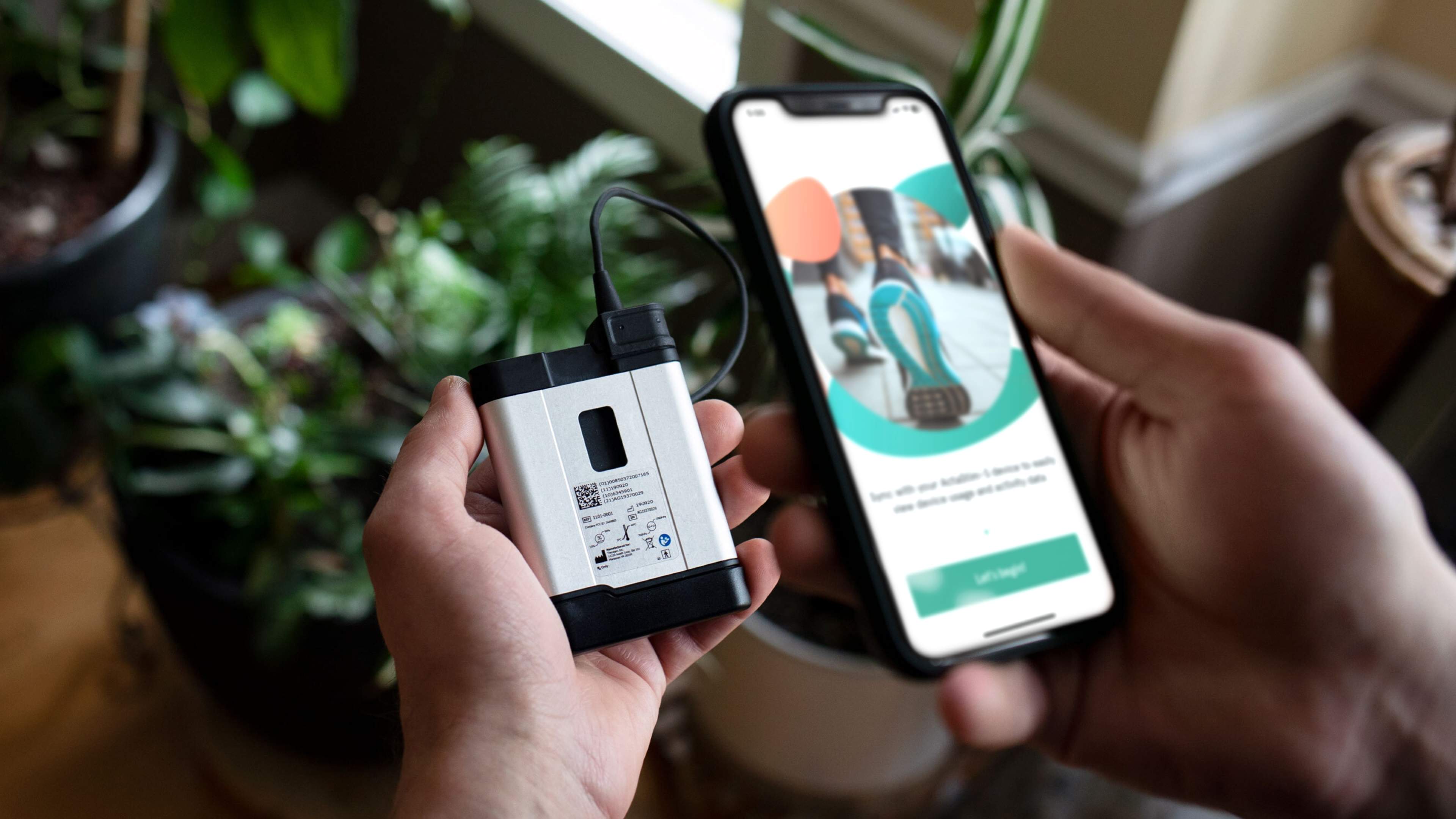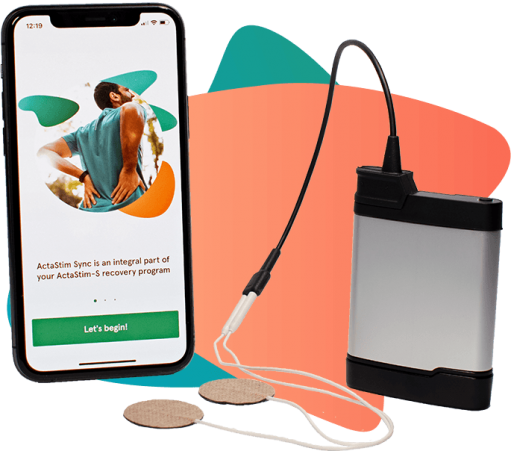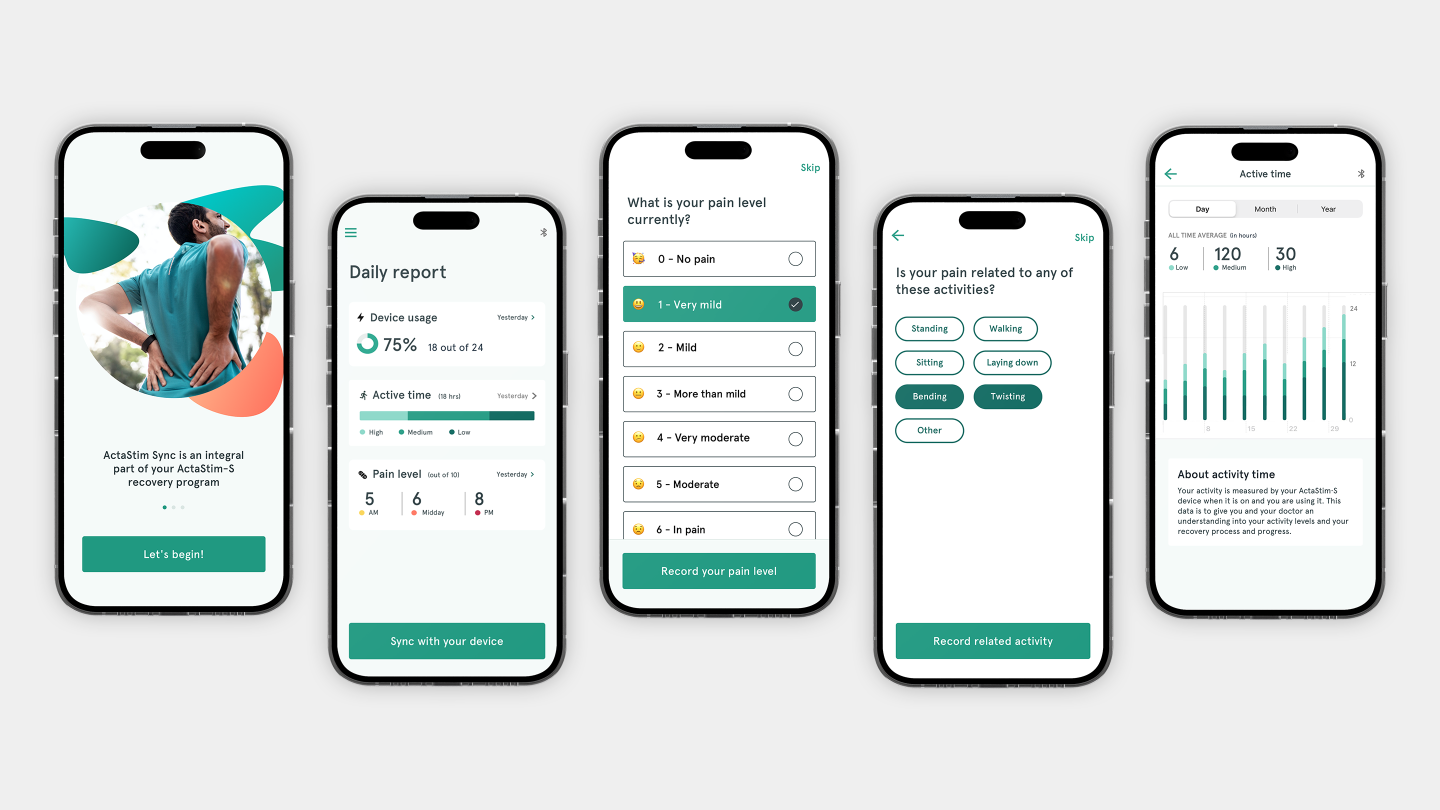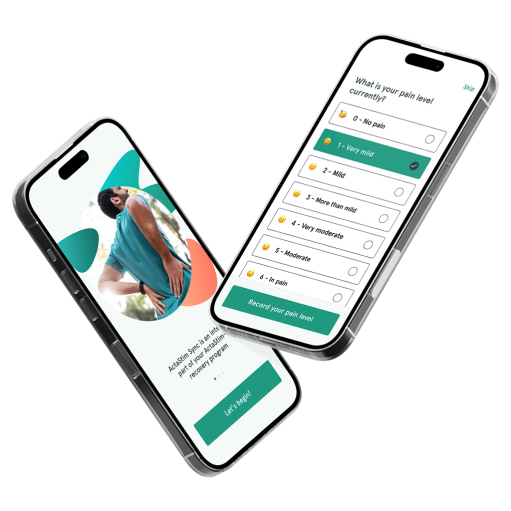Chris McAuliffe, Founder and CEO, Theragen
A data-driven companion app improves spinal surgery recovery

"We hired TXI to help us implement a novel idea, taking it from concept to prototype through to public launch and beyond."
Theragen is a medtech company that creates non-invasive technologies to deliver therapeutic energy to the body to treat pain and disease while healing tissue. Theragen looked to TXI to help design and deliver their companion mobile app for ActaStim-S, a wearable device that supports back surgery patients with lumbar spine fusion therapy. Together, Theragen and TXI worked to enhance the overall patient adherence of the device by improving the patient experience.
The challenge
Making the shift to a user-centered product company
Wearable health monitoring devices often suffer from low usability and adoption, both key to improving patient recovery outcomes. These devices capture valuable patient data and give doctors a more holistic view of real-time healing progress. They also serve as a guide to aid in critical pain management and recovery decisions.
TXI and Theragen approached the enhancement of ActaStim-S’s companion app by conducting extensive research involving spinal surgery patients and physicians to identify three primary objectives:

-
Encourage movement post-surgery to aid in the recovery process - Simple, easy-to-use features empower patients to track and store crucial recovery information and stay actively engaged in their therapy, speeding up the recovery process.
-
Enable better data collection - Tracking and sharing user data with doctors helps establish a baseline of shared knowledge. Reliable health data provides insights into patient behavior and helps them receive better care.
-
Achieve FDA and HIPAA-compliance - Ensuring the highest data security and patient privacy standards is critical in the healthcare industry, where sensitive medical information must be safeguarded to maintain trust and comply with regulatory requirements.
TXI's team approached every problem as something that could be solved. We trust them with our business and to always do what's in our best interest.


The outcome
Digital health done right
The outcome of this project was a mobile application that helped patients get back to their daily lives much quicker. One year after surgery, patients who received nine months of ActaStim-S device therapy were more than twice as likely to achieve overall success versus a placebo control (a study backed by the FDA).
Moreover, two-thirds of the largest US hospitals offer mobile health apps, yet providers pursuing mobile patient engagement fail because apps provide poor user experience and functionality. Data-driven mobile apps that focus on patients first, like ActaStim Sync, have the potential to align functionality with patient needs better. Having just another mobile app is not enough, and it’s time for the medical industry to adopt a more user-centric approach to patient care.
ActaStim-S represents a paradigm shift in patient engagement within the medical landscape. The app's success stems from its meticulous focus on user experience and functionality, addressing the prevalent shortcomings in existing healthcare applications. ActaStim Sync has set a new standard for mobile health apps by leveraging data-driven insights and aligning functionalities with patient needs. The app facilitates effective communication between patients and healthcare providers and empowers individuals to manage their recovery journeys actively.



